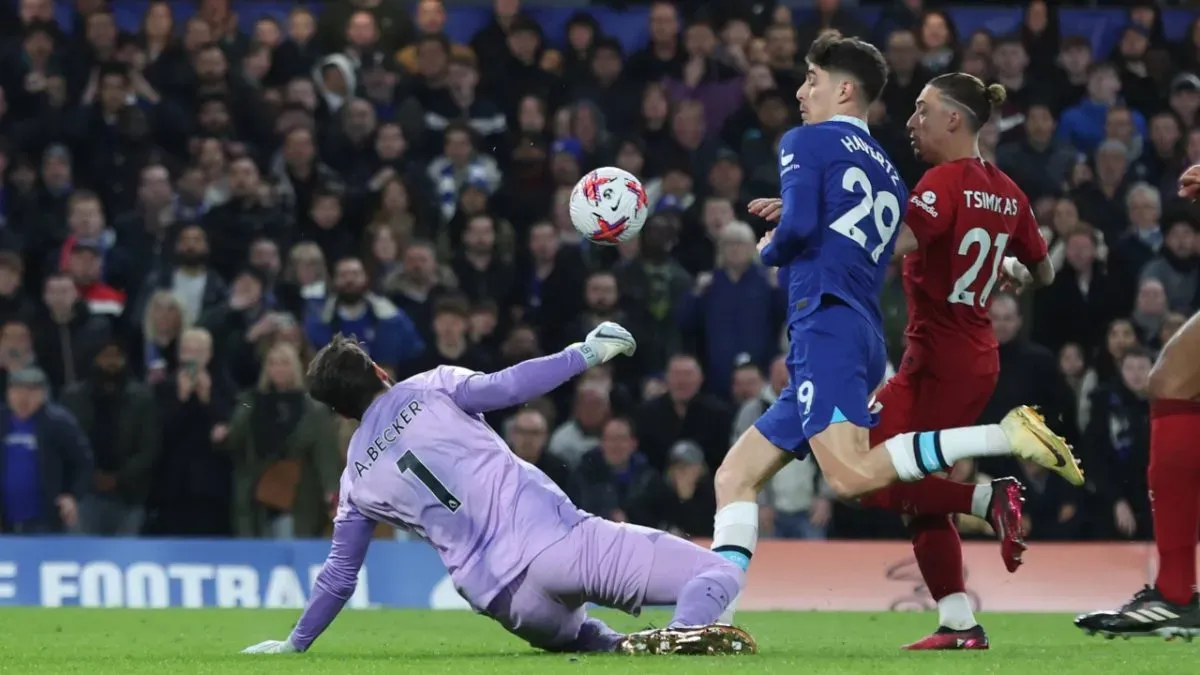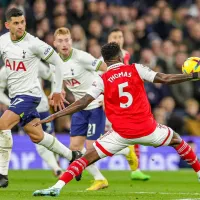Soccer officiating once again took center stage on Tuesday night in Paris. Newcastle clung to a narrow 1-0 lead late in crucial a UEFA Champions League group stage matchup with Paris Saint-Germain. The hosts desperately hunted for a late equalizer. The referee then awarded a controversial penalty kick due to a perceived handball infraction inside the Magpies’ box.
The incident in question did not get an original call. However, VAR Tomasz Kwiatkowski asked match referee Szymon Marciniak to the review event on the pitchside monitor. Marciniak eventually reversed his initial ruling and gave PSG the spot kick. The reversal came down to the referee’s interpretation of the handball rule.
Marciniak judged that the Newcastle defender Tino Livramento made his body bigger when the ball struck his arm. However, replays clearly showed that the ball hit the fullback’s body before ricocheting off of his arm. Livramento’s arm was also not in an outstretched position either. These factors mean that the penalty was incorrectly awarded. Superstar forward Kylian Mbappe eventually converted the spot kick to level the scoreline.
Soccer lawmakers recently rejected calls to simplify handball rule
The UEFA Football Board previously advised IFAB, the international soccer rules committee, to simplify the handball law. The board currently consists of former players and coaches. During a meeting in April, the board recommended that “no handball offense should be called on a player if the ball is previously deflected from his own body and, in particular, when the ball does not go towards the goal.”
IFAB, however, rejected the notion immediately. The organization felt that players would then take advantage of this proposed rule change. While this could be true, changes have to be made to help create a more universal understanding of the official laws of the game.

There have been handbells where the contact was so incidental neither team made any motion that would indicate the ball even hit a hand.
Refereeing decisions have become more and more divisive in recent months. The introduction of VAR has helped amplify these controversies. VAR was implemented in the sport to eradicate clear and obvious on-field errors. This would help get more correct calls on the pitch. However, this has not yet exactly been the case.
Nevertheless, completely getting rid of VAR is not necessarily the solution to the problem. Instead, simplifying the major rules, particularly handball, would create more consistency in refereeing. The current verbiage of the handball is completely open to interpretation.
For instance, the Football Association (FA) in England describes the handball rule in nearly 300 words. There are different reasons for giving a handball as a foul. For example, a player’s arms make their body unnaturally bigger. People argue over what this part of the law means. It seems as if every referee has a slightly different idea of what “unnaturally bigger” actually means.
Clarifying rules would help players, fans, and referees
A simplification of the handball rule could come from narrowing down infractions to specific violations. Most fans around the world are not happy with the increasing amount of VAR reviews slowing gameplay. This would include deliberate actions by defenders to gain an advantage. Also, defenders must fully stretch their arms. Along with simplifying this rule, specific offside technology needs to expand.
Offside decisions are also currently divisive as well. Nevertheless, they do not have to be anymore. Semi-automated offside technology (SAOT) quickly and accurately determines offside calls with ease. The technology is currently in place in UEFA’s club competitions and Italy’s Serie A. Europe’s top leagues need it promptly.
Soccer officials around the world are attempting to combat abuse towards referees by protecting their officials with stricter punishments towards violators. However, these lawmakers would also help ease concerns themselves by clarifying their own rules. Organizations are making it hard on their officials with the complicated laws.
These tweaks would help give everyone involved in the game, from the players, coaches, and fans, a clearer understanding of the rules. It would also allow referees to have a comprehensible objective during games.
PHOTOS: IMAGO.















